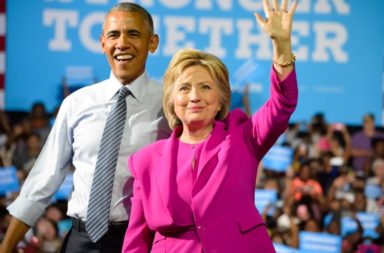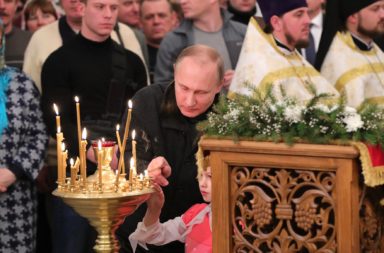With just two weeks until the Iowa Caucuses, the showdown time has come. The polls have been tightening and with Sanders making what appears to be a late surge in the early voting states, everything looked to be up for grabs in the final debate before the first vote.
There was no shortage of issues for the candidates to argue over, as questions from the moderators and online viewers traced a range of topics, forcing the candidates who until now had
The division between candidates first became clear at the beginning of the night, with the Sanders campaign releasing its healthcare plan only two hours before the commencement of the debate. Despite the Clinton camp having little time to pore over the details, the presidential hopeful wasted no time in attacking Sanders on healthcare, showing that she was no longer willing to pull punches in this last debate before Iowa.
Asking Sanders how he intended to pay for his plan, Clinton accused Sanders of wanting to undo the hard work of President Obama, building a single payer model of healthcare, which would essentially involve repealing the recently introduced Affordable Care Act.
Sanders responded aggressively, arguing that not only would his plan build on the Affordable Care Act of the previous President, it would also reduce healthcare costs for Americans by over $5,000 per person.
The two went back and forth on this with Clinton arguing that Sanders had worked on a number of healthcare bills during his time in the Senate, none of which had dealt with the model that he was now proposing. In response, Sanders not only called the former First Lady “disingenuous”, but also went on to say that with 29 million Americans still without coverage, the Affordable Care Act still did not go far enough. For this reason he argued, his plan aimed to extend the work of the current President.
The discussion of the night then moved on to the question of guns, with Clinton again getting onto the front foot, attacking Sanders for being supportive of laws that protected gun sellers from liability in the event of attacks. Sanders was accused of changing his position on liability for gun manufacturers, a position that clearly had changed in recent weeks, and yet one which he refused to explain.
Instead, the Vermont Senator argued that as he’d received a D- rating from the NRA, he was clearly no friend of the gun lobby. The issue was of particular significance at this debate, as it was being hosted only a block away from the church in which the Charleston mass shooting of last year took place.
For this reason, the issue of race relations and uniting a divided country also received a great deal of attention, with all candidates acknowledging that minority groups in America faced real challenges that needed to be dealt with by any incoming President.
A proposal Sanders canvassed here was that he felt the police force needed to be more diverse in order to more accurately reflect the broader community. He also talked about sentencing reform for small crimes such as drug possession, and compared them with another policy area of his, which he has advocated strongly for throughout the course of the campaign. Namely, he referred to the issue of greater penalties for white-collar crime, particularly financial crimes on Wall Street. Arguing that financial institutions and professional lobbyists have long held too significant an influence on the political process, he argued that reforming the political system would help bring about a more effective democracy with better personal relations.
At this point, Martin O’Malley pointed to his record as Governor of Maryland, where he had worked on sentencing reform for drug-related offences, and repealed the death penalty in the state. However, speaking for only a few short sentences, the former Governor managed to only introduce a few of his ideas before being cut-off by one of the two major candidates. This would happen consistently throughout the debate, as the moderators showed a preference for the two major candidates who until now, had dwarfed O’Malley in the polls.
Clinton was happy to talk about unifying the country, pointing to her political experiences working with members of other parties and interest groups, both as Secretary of State and as First Lady. She argued that she had received support from otherwise vocally hostile Republicans, and she noted that had even crossed the floor to vote with the Opposition party on a number of key issues. Sanders tried to make a similar point, discussing when he had worked with Republican John McCain on Veteran’s healthcare reform. However, this was the sole example he could point to before returning to his main point that he continued to prosecute throughout the night – his belief that the political system is broken and that lobbyists and financial institutions have an outsized say in it because of their financial influence.
This point came was revisited shortly after the question of uniting the country, as the discussion of the evening moved towards repairing the American economic and financial system. Here, Sanders launched into his plan to break up the big banks, remove implicit guarantees of their safety by government, and re-institute the Glass-Steagall Act that was repealed prior to the financial crisis. In response, Clinton agreed with the majority of these points, stopping at repealing the Glass-Steagall Act, (perhaps because this was something her husband undertook during his Presidency).
Instead, Clinton pointed to the Dodd Frank Wall Street Reform and Consumer Protection Act, introduced by President Obama following the financial crisis, a reform she argued was sufficient to address the needs of the American financial institution. At this point the attacks took on a more personal tone, with Sanders stating that the reason he was comfortable to make more significant changes was because he had not received any speaking fees or campaign contributions from Wall Street, a comment clearly directed at Hilary Clinton. Clinton responded that she was certainly no friend of Wall Street, with various financial institutions now running attack ads against her campaign.
As the discussion for the evening moved towards foreign policy, the former Secretary of State clearly showed her comfort discussing complex political issues. On the matter of Iran, there was little difference of opinion between the candidates. But as the question moved towards how each would deal with ISIS, Clinton’s expertise became apparent. Sanders suggested that he would force Iran and Saudi Arabia to work together to fight ISIS, a comment that was immediately ridiculed across social and digital media. Clinton instead, outlined a vision for working with forces currently involved in air strikes, and discussed a willingness to provide support for the Iraqis, Sunnis and Kurdish forces fighting in Iraq and Syria. While perhaps the most significant division between the major candidates for the evening, the matter of foreign policy was raised only briefly at the end of the debate before closing remarks were progressed.
With the candidates concluding, it was clear that serious divisions had now emerged between Sanders and Clinton. O’Malley too, had a number of important points to make; yet given the time allotted to him by the moderators, he was clearly deemed to no longer be an important actor within this debate. Instead, the evening showed that with only a few weeks to go until votes are cast in Iowa and New Hampshire, Sanders and Clinton will be doing everything they can to gather support from undecided voters.
The next debate is scheduled to take place only one evening after the vote in New Hampshire. And with momentum set to build behind whichever candidate emerges from these votes looking strongest, there will be a lot riding on the following two weeks. The debate failed to produce a clear winner or loser. Instead, it presented some clear differences of opinion, which the candidates will no doubt prosecute to their greatest abilities. The next two weeks will be an important time for the candidates, so make sure to stay tuned to see how the differences that we saw emerge tonight, continue to play out over the following weeks.





